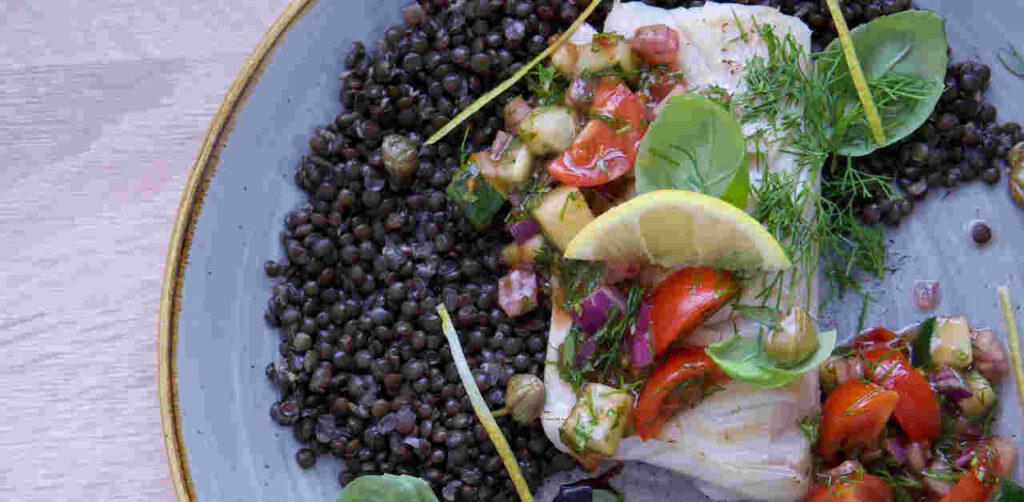Not everything that comes in a box, bag or can wreak havoc on a healthy diet
Published by: AARP
Americans love processed foods. A recent study by the NYU School of Global Public Health found that ultra-processed food consumption has risen across nearly every segment of the U.S. population over the past two decades and maybe a big contributor to the obesity epidemic. According to a report this year from the National Poll on Healthy Aging at the University of Michigan, about 13 percent of people ages 50 to 80 — especially women and older adults who are lonely, overweight, or in fair or poor health — are actually addicted to processed foods. That’s a concern because studies have linked highly processed foods to a greater overall risk of cancer (especially brain and ovarian cancer), dementia, and death from heart disease.
The next time you’re at the grocery store, keep an eye out for these 13 good-for-you processed foods.
1. Canned beans
These have two to three times more fiber than brown rice or quinoa. They’re also a good source of protein, which older adults need. Look for lower-sodium versions, or rinse beans under the tap for a few seconds, doing so can reduce the sodium by 40 percent.
2. Dairy or soy milk
Milk is high in calcium, protein, Vitamin D, potassium, and phosphorous — all important as we age. For vegans or the lactose-intolerant, go with soy milk. It is the only plant-based milk that has complete protein. It has 8 grams of protein per glass, all of the essential amino acids of cow’s milk and is fortified with calcium and Vitamin D.
3. Greek yogurt
Greek yogurts tend to be high in protein and have quality micronutrients, especially calcium, and they often have probiotics that are healthy for our gut.
4. Packaged salads or pre-cut vegetables
You can now buy precut fruits and veggies — like bagged broccoli, cauliflower or carrots — and eat them raw, steam them in your microwave, or add them to a soup.
5. Cereal
All breakfast cereals are fortified with vitamins and minerals, such as iron and zinc, vitamin A, assorted B’s, and D’s.
Look for whole grains as the main ingredient and mix in a high-fiber cereal, or top with chia seeds, which are high in omega-3 fatty acids, calcium, and fiber. Add milk and fruit to the bowl for a boost of benefits.
6. Frozen or canned fish
Fish are part of the recommended Mediterranean diet guidelines, and in a lot of regions of the country, fresh fish is not readily available.
The American Heart Association recommends consuming two seafood servings a week. Unless you’re bagging your own trout, frozen fish (usually frozen on boats right after the catch) can be as good as fresh.
7. Nuts, seeds, and nut butter
Protein helps maintain muscle for people getting into their golden years. And nut butter has plenty of protein and heart-healthy fats. But watch serving sizes — and check for no added sugar, salt, or preservatives.
8. Tofu
Those soft little blocks of soybean curd can be a great plant-based protein alternative and are versatile enough to throw into a variety of dishes. They can be a protein meal replacement, are low in sodium, and have no cholesterol.
9. Frozen fruits and vegetables
Frozen fruits such as brain-boosting blueberries are great in the winter. Most are picked in the field and frozen right away, locking in their nutrients and flavor.
The health benefits of fruits are aplenty. They are high in fiber and loaded with potassium, magnesium, and vitamins A, C, and K. As for frozen veggies. Try to avoid those in sauces, which usually contain extra salt and fat.
10. Precooked lentils or whole-grain brown rice
Lentils are [rich in] protein and high in fiber and sources of iron, zinc, and magnesium. Or try whole-grain-rice packages you zap in the microwave. Whole-grain farro provides a good source of protein and fiber.
11. Chickpea pasta
Garbanzo beans are a powerhouse carbohydrate that helps prevent chronic diseases. Chickpeas are best eaten in whole form, yet these pasta offer a good fiber and plant protein source to complement meals.
12. Rotisserie chicken
Rather than fast-food or frozen chicken nuggets, opt for a pre-cooked rotisserie chicken. Remove the skin (to lower fat and salt content) and eat as an entrée or in a salad.
13. Hummus
Chickpea dips provide plenty of good non-beef vegetarian proteins and have fiber, vitamins, and minerals. Look for a short ingredient list: chickpeas, olive oil, tahini paste, seasonings, and salt. Pair with raw, precut veggies — or, if you must have a cracker, go for a low-sodium, whole-grain version.
Honorable mentions
Protein-rich cottage cheese; olive oil (a cornerstone of the Mediterranean diet); tomato sauce (make sure it’s low in sugar and salt); zero-calorie flavored waters; pickles (a low-cal snack food); fiber- and probiotic-rich sauerkraut; dried fruit for snacking.
